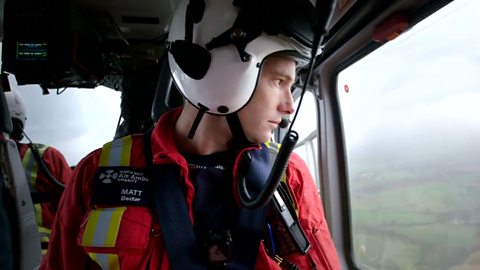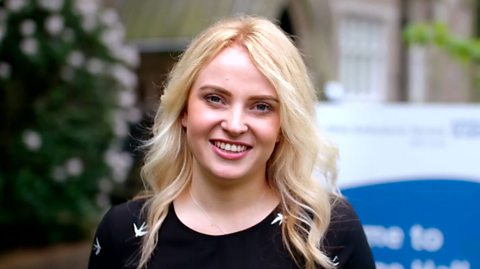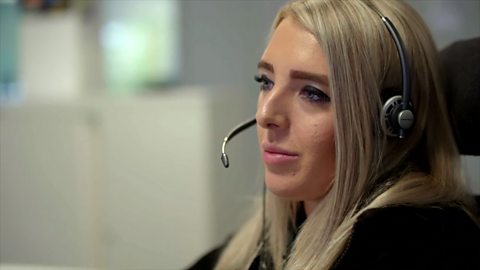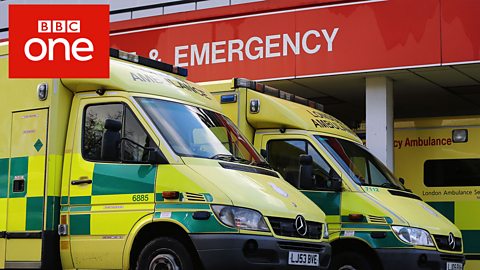Meet Lee, who's a HEMS (Helicopter Emergency Medical Service) pilot for North West Air Ambulance. Part of our Bitesize world of work series.
Lee
I'm Lee, I'm 47, and I'm a HEMS pilot for the North West Air Ambulance. So the role of the HEMS pilot is to provide a quick form of transport for the paramedics and doctors to the scene of an incident as fast as we can. So the patient who's involved, sometimes in a really serious accident, can get specialist care in a very short space of time.
We do very little planning, so a call comes in and we just have to launch. The speed at which we can get to them makes a big difference in the treatment of these people. The challenges when we get to an incident are finding a site which is big enough, which is safe enough. If we're landing urban, next to people's houses, they can damage fences and blow over gazebos in gardens, so we have to be considerate to all these factors. But the biggest one is the safety of people on the ground and in the aircraft.
Simon
I have great confidence in Lee and his pilot abilities. Lee can land in a very small space and get us close to a patient really quickly, which is really important when it comes to life or death situations. We're a really close-knit team on HEMS – we work really closely together and Lee is a really big and important part of that team.
Lee
So, on a morning, we do a brief to make sure that the day is going to be good for flying. "There's no restricted airspace or anything that's going to stop us going anywhere. If we do go urban, good lookout for wires, cranes, drones, kites. If you see anything you're not happy with, shout – doesn't matter where it is in the profile, if you've seen it make sure I see it."
The first time I went in the helicopter as a passenger, I knew that it was a career that I wanted to pursue. It's such a satisfying job seeing the crews working at the scene to help save somebody's life.
There are two ways that you can learn to become a pilot. One is the civilian route, where you do your private pilot's licence and then your commercial pilot's licence. The second route is through one of the Armed Forces – either the Army, the Navy or the Air Force. You need a lot of determination to achieve the qualifications. It is expensive, but anybody can achieve it if they really want to and they have the determination. It is an amazing career.
The first time I went in the helicopter as a passenger, I knew that it was a career I wanted to pursue.
- Lee's job is to provide a quick mode of transport for medics to get to emergency call-outs. The helicopter can save precious time in reaching a patient, giving them a better chance of a positive outcome
- From the first time he went in a helicopter as a passenger, Lee knew that being a pilot was the career he wanted
- One of the biggest challenges is finding areas that are big and safe enough to land the helicopter to get the medics as close to the patient as possible
- Becoming a pilot is a challenging path but Lee believes it is possible if you have the determination.

What to expect if you want to be a helicopter pilot
- Helicopter pilot average salary: £25,000 to £45,000 per year
- Helicopter pilot typical working hours: 39 to 41 hours per week
What qualifications do you need to be a helicopter pilot?
You could get into this role via a university course or specialist courses run by private training organisations.
You could also join the army, Royal Navy or Royal Air Force as a trainee pilot.
Sources: LMI for All, National Careers Service
This information is a guide and is constantly changing. Please check the National Careers Service website for the latest information and all the qualifications needed.
For careers advice in all parts of the UK visit: National Careers Service (England), nidirect (Northern Ireland), My World of Work (Scotland) and Careers Wales (Wales).


Work experience in your area
Find work experience placements with Workfinder.
Tips and advice
Help with interviews, writing a CV and all things work experience related.


Matt: Air ambulance doctor. video
Matt works in A&E as an air ambulance doctor.

Alice: press officer. video
Alice is a press officer for the North West Ambulance Service.

Laura: 999 call taker. video
Laura and her colleagues are the first people you speak to if you call an ambulance.

